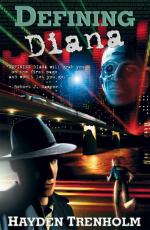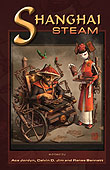Too often we view marketing only as selling and we forget about presentation, tone and targeting an audience. Together, these things create a brand and branding is something writers rarely think about. A brand is what we become known for and it is what people will expect from us and they’ll either love us or hate us for it.
Sometimes, I watch the singing competitions such as The Voice and X Factor. I see people mustering the courage to follow their dreams and I applaud them for it. What distinguishes the finalists and the winner from the rest of the pack? It isn’t simply the singing – many of them are excellent. When you’re garnering audience votes, there’s got to be something more. Commercial appeal is how one judge on the X Factor summed it up – nice voice, but no commercial appeal. Is your writing nice but has no commercial appeal? But, what is commercial appeal?
On the singing competitions, there are specific things about the finalists that make them commercially appealing. Each one has a distinct style (genre, sound/voice, song presentation), target market (demographics) and tone (audience appeal, song choice, personal appearance, passion). Overriding all these is passion. You need to express passion whether you’re singing or writing. Are you missing the passion and depth to move an audience?
Let’s examine the factors from the singing competitions to see how we can apply them to the query letter, the story and our virtual presence. How we present ourselves in each of these areas determines how people perceive us (our brand).
The Query Letter
First impressions count – and the first impression we make is with the dreaded query letter. Most of us aren’t aware that we’re branding ourselves with this letter and that it determines our commercial appeal. Your brand is something that the editor/agent will glean from your letter. The specific information you convey plus overall feeling you convey forms your brand even though you don’t have a logo or jingle like commercial products do.
Tone: Is your letter polite and professional or obnoxious and whiny? Does the story pitch convey passion for the story and characters?
Style: Can you write clear concise sentences or are they run on, filled with dangling modifiers and metaphors trying to pack in too much information? If the latter, it makes you seem uncertain, not in command of craft, disorganized and lacking clarity in your story and that’s bad branding. Is your story pitch focused and clear? Does your letter convey that you understand the genre you’re writing in?
Target Market: The comparison pitch in your query letter positions your novel in the market and sets an expectation of what the editor/agent can expect. Do the works you’re citing accurately reflect your story’s style, tone, plot or theme? Who is your audience? Your audience is determined in large part by the genre or sub-genre you’ve chosen, your public presence and initial contact list.
Your Writing
Branding is what readers come to expect from you. That’s why author’s use pseudonyms when they change genres – each name is a brand for a specific genre – readers associate a certain type and style of book. A sub-genre is a very specific branding which writes for a narrower target market. Who is your target market? Will those demographics be moved by the passion in your work, your writing style and your messaging? For example, cozy mystery author M.C. Beaton has a very different audience than does Ian Rankin with his hard-boiled detective thrillers. Each author exploits different sensibilities within the mystery genre and has a writing style that appeals to a particular audience.
Sometimes an author whose book didn’t sell well (the brand turned bad) will use a pseudonym sell new work (rebranding).
Your Virtual Presence
Of course these all these things apply to blogs and any social media we engage in. Always think about your brand and how people will perceive you. As with your writing, they can interpret what they read and see only in relation to their personal context and experience. Therefore, your public persona on these sites is part of your brand and it affects word-of-mouth marketing.
Think about your favorite authors. What are they known for? What do they write and how do they write it? What is the tone, the language, the plot and messaging in their books? What do you expect to read when you choose his book?
Tom Clancy was one of my favorite authors. He was lauded by people in or connected to the military establishment because of the accurate details in his books. That was part of his brand and that’s what people looked for when they read his books. Plus he was an excellent story teller and writer and we’ll miss him for that.
Your brand is part of your commercial appeal. Be aware of it and make the most of it in your writing, in the business of writing and in your public persona.


